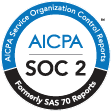Highlights
- Businesses challenged by ongoing skills shortages and low employment records would see their recruiting costs increase
- Over a third of businesses said they would be harmed by the proposal to extend the Immigration Skills Charge
According to the latest research from the British Chambers of Commerce (BCC) and job site Indeed over 50% of UK businesses, who employ staff from outside the UK, would be negatively impacted by government proposals for the UK’s future immigration system.
As a consequence of the ending of free movement and a £30,000 minimum salary threshold for skilled migrants, businesses already challenged by ongoing skills shortages and low employment records would see their recruiting costs increase further and face even more barriers between them and the talent they need.
The BCC has called for the new Prime Minister and the Migration Advisory Committee’s review to make it a priority to ensure the UK’s new immigration system allows businesses in all regions and sectors to continue to access non-UK workers at every level quickly and cost-effectively when they cannot recruit from among the indigenous population.
The survey results certainly highlight the concerns of businesses about the planned future restrictions, charges and thresholds proposed with 57% respondents indicating they would be adversely affected by plans to impose a 12-month work and residency limit on lower-skilled migrants, requiring workers to leave the UK for at least a year once their visa had expired.
Additionally, just over a third of businesses said they would be harmed by the proposal to extend the Immigration Skills Charge, an additional charge for each foreign worker employed, to EU27 nationals after Brexit.
Explore IMS People Possible’s services
The survey also highlights a growing need among businesses to access foreign workers to ensure they have access to the foreign language skills they need to conduct their business operations, especially as research suggests fewer UK students are learning foreign languages.
The Migration Advisory Committee’s review is expected by January 2020 and the current Home Secretary, Sajid Javid has ordered a review into £30,000 salary threshold for immigrants post-Brexit after criticism that the figure for someone to be considered a skilled worker was too high.
The aim would be to prevent further shortages of skilled workers in certain sectors or UK regions, such as workers in the NHS, hospitality and catering industries and scientific, teaching and education fields who would fall below the £30,000 figure.
It is imperative that measures are put in place that will avoid employers facing a cliff-edge in recruitment and works towards building a successful economy where employers can find candidates with the necessary skills.








